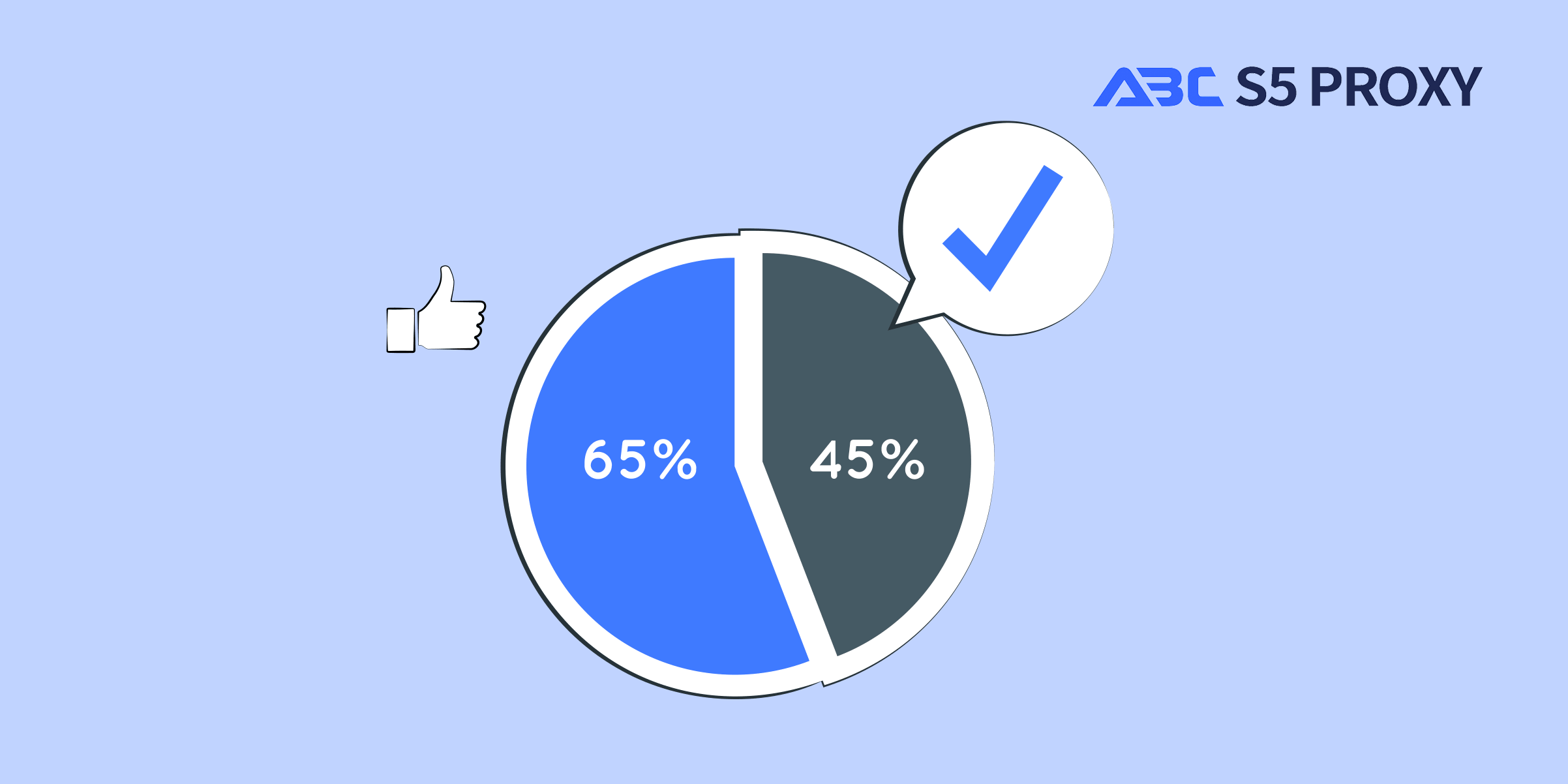Residential Proxies
Allowlisted 200M+ IPs from real ISP. Managed/obtained proxies via dashboard.

Proxies Services
Residential Proxies
Allowlisted 200M+ IPs from real ISP. Managed/obtained proxies via dashboard.
Residential (Socks5) Proxies
Over 200 million real IPs in 190+ locations,
Unlimited Residential Proxies
Unlimited use of IP and Traffic, AI Intelligent Rotating Residential Proxies
Static Residential proxies
Long-lasting dedicated proxy, non-rotating residential proxy
Dedicated Datacenter Proxies
Use stable, fast, and furious 700K+ datacenter IPs worldwide.
Mobile Proxies
Dive into a 10M+ ethically-sourced mobile lP pool with 160+ locations and 700+ ASNs.
Scrapers
Collection of public structured data from all websites
Proxies
Residential Proxies
Allowlisted 200M+ IPs from real ISP. Managed/obtained proxies via dashboard.
Starts from
$0.6/ GB
Residential (Socks5) Proxies
Over 200 million real IPs in 190+ locations,
Starts from
$0.03/ IP
Unlimited Residential Proxies
Unlimited use of IP and Traffic, AI Intelligent Rotating Residential Proxies
Starts from
$1816/ MONTH
Rotating ISP Proxies
ABCProxy's Rotating ISP Proxies guarantee long session time.
Starts from
$0.4/ GB
Static Residential proxies
Long-lasting dedicated proxy, non-rotating residential proxy
Starts from
$4.5/MONTH
Dedicated Datacenter Proxies
Use stable, fast, and furious 700K+ datacenter IPs worldwide.
Starts from
$4.5/MONTH
Mobile Proxies
Allowlisted 200M+ IPs from real ISP. Managed/obtained proxies via dashboard.
Starts from
$1.2/ GB
Scrapers
Web Unblocker
Simulate real user behavior to over-come anti-bot detection
Starts from
$1.2/GB
Serp API
Get real-time search engine data With SERP API
Starts from
$0.3/1K results
Scraping Browser
Scale scraping browsers with built-inunblocking and hosting
Starts from
$2.5/GB
Documentation
All features, parameters, and integration details, backed by code samples in every coding language.
TOOLS
Resources
Addons
ABCProxy Extension for Chrome
Free Chrome proxy manager extension that works with any proxy provider.
ABCProxy Extension for Firefox
Free Firefox proxy manager extension that works with any proxy provider.
Proxy Manager
Manage all proxies using APM interface
Proxy Checker
Free online proxy checker analyzing health, type, and country.
Proxies
AI Developmen
Acquire large-scale multimodal web data for machine learning
Sales & E-commerce
Collect pricing data on every product acrossthe web to get and maintain a competitive advantage
Threat Intelligence
Get real-time data and access multiple geo-locations around the world.
Copyright Infringement Monitoring
Find and gather all the evidence to stop copyright infringements.
Social Media for Marketing
Dominate your industry space on social media with smarter campaigns, anticipate the next big trends
Travel Fare Aggregation
Get real-time data and access multiple geo-locations around the world.
By Use Case
English
繁體中文
Русский
Indonesia
Português
Español
بالعربية

Choosing the Right Static Residential IP and Nodes
In today's digital world, it is crucial for individuals and businesses to prioritize online security and privacy. One effective way to enhance online protection is by utilizing static residential IPs and nodes. These resources provide a stable and secure connection, making it challenging for cybercriminals to compromise sensitive information. However, with numerous options available in the market, it can be overwhelming to select the most suitable static residential IP and node for your specific needs. To help you make an informed decision, this blog will guide you through the essential factors to consider when choosing static residential IPs and nodes.
Before delving into the selection process, it is essential to understand the basics of static residential IPs and nodes. A static residential IP address is a unique identifier assigned to a device connected to a network. Unlike dynamic IP addresses that change periodically, static IPs remain constant, making them ideal for tasks that require consistent access. On the other hand, nodes refer to individual points within a network that facilitate data transmission. Static residential nodes are commonly used to mask the user's actual location and enhance online anonymity.
1. **Geographical Location**: When selecting static residential IPs and nodes, consider the geographical location of the service provider. Opt for providers with a diverse range of IP addresses from various countries and regions. This variety allows you to choose an IP address that aligns with your desired location, enabling you to bypass geo-restrictions and access region-specific content.
2. **IP Rotation Frequency**: Another crucial factor to consider is the IP rotation frequency offered by the provider. Some users may require frequent IP changes to avoid detection or access restricted content. In contrast, others may prefer a more stable IP address for consistent connectivity. Assess your specific requirements and choose a provider that offers an IP rotation frequency that meets your needs.
3. **Network Reliability and Speed**: The reliability and speed of the network infrastructure play a significant role in determining the performance of static residential IPs and nodes. Prioritize providers that offer high-speed connections and minimal downtime to ensure seamless browsing and data transfer experiences. Additionally, consider the provider's network capacity and scalability to accommodate your growing traffic volume.
4. **Security Features**: Security should be a top priority when selecting static residential IPs and nodes. Choose providers that implement robust encryption protocols and security measures to safeguard your data from potential threats. Additionally, inquire about the provider's data protection policies and privacy standards to ensure compliance with industry regulations.
5. **Customer Support**: Reliable customer support is essential when using static residential IPs and nodes. Select providers that offer responsive customer service channels, such as live chat, email support, or phone assistance. Prompt and knowledgeable support can help address any technical issues or queries promptly, ensuring uninterrupted service.
6. **Pricing Plans and Scalability**: Compare pricing plans offered by different providers to find a balance between cost-effectiveness and service quality. Consider providers that offer flexible pricing plans and scalability options to accommodate your changing requirements. Avoid providers that impose restrictive contracts or hidden fees that could lead to unexpected costs in the long run.
7. **User-Friendly Interface**: A user-friendly interface is essential for seamless navigation and configuration of static residential IPs and nodes. Choose providers that offer intuitive dashboard designs and easy-to-use tools for managing your network settings. Evaluate demo versions or trial periods to assess the platform's usability before committing to a subscription.
Choosing the right static residential IP and nodes is a critical decision that can impact your online security and privacy significantly. By considering factors such as geographical location, IP rotation frequency, network reliability, security features, customer support, pricing plans, scalability, and user-friendly interface, you can make an informed choice that aligns with your specific needs. Prioritize providers that offer a comprehensive suite of features and services to ensure a seamless and secure online experience. Remember that investing in high-quality static residential IPs and nodes is an investment in your digital safety and peace of mind.
Featured Posts
Popular Products
Residential Proxies
Allowlisted 200M+ IPs from real ISP. Managed/obtained proxies via dashboard.
Residential (Socks5) Proxies
Over 200 million real IPs in 190+ locations,
Unlimited Residential Proxies
Use stable, fast, and furious 700K+ datacenter IPs worldwide.
Rotating ISP Proxies
ABCProxy's Rotating ISP Proxies guarantee long session time.
Residential (Socks5) Proxies
Long-lasting dedicated proxy, non-rotating residential proxy
Dedicated Datacenter Proxies
Use stable, fast, and furious 700K+ datacenter IPs worldwide.
Web Unblocker
View content as a real user with the help of ABC proxy's dynamic fingerprinting technology.
Related articles

Choosing Static Residential IP and Nodes: The Ultimate Guide
Looking to select static residential IP and nodes? Learn how to choose the best options for your needs. Find out key factors and tips in our guide!

How does CAPTCHA practice meet modern verification challenges
This article explores the synergy between the technical logic of captcha practice and the proxy IP, and analyzes how to improve the efficiency of captcha processing and ensure the stability of the automated process through the proxy service of abcproxy.

A Comparative Analysis of Websockets and HTTP
Title: A Comparison of WebSocket and HTTP ProtocolsWebSocket and HTTP are two common protocols used in web development, each serving different purposes and offering unique features. In this blog post, we will explore the differences between WebSocket and HTTP protocols.WebSocket is a communication protocol that provides full-duplex communication channels over a single TCP connection. This allows for real-time data transfer between a client and a server, making it ideal for applications that require low latency and high-speed data exchange, such as online gaming, chat applications, and live streaming.On the other hand, HTTP (Hypertext Transfer Protocol) is the foundation of data communication on the World Wide Web. It is a request-response protocol that is used for fetching resources from a server, such as web pages, images, and videos. While HTTP is widely used for loading web pages and transferring files, it is not suitable for real-time communication due to its limitations in maintai